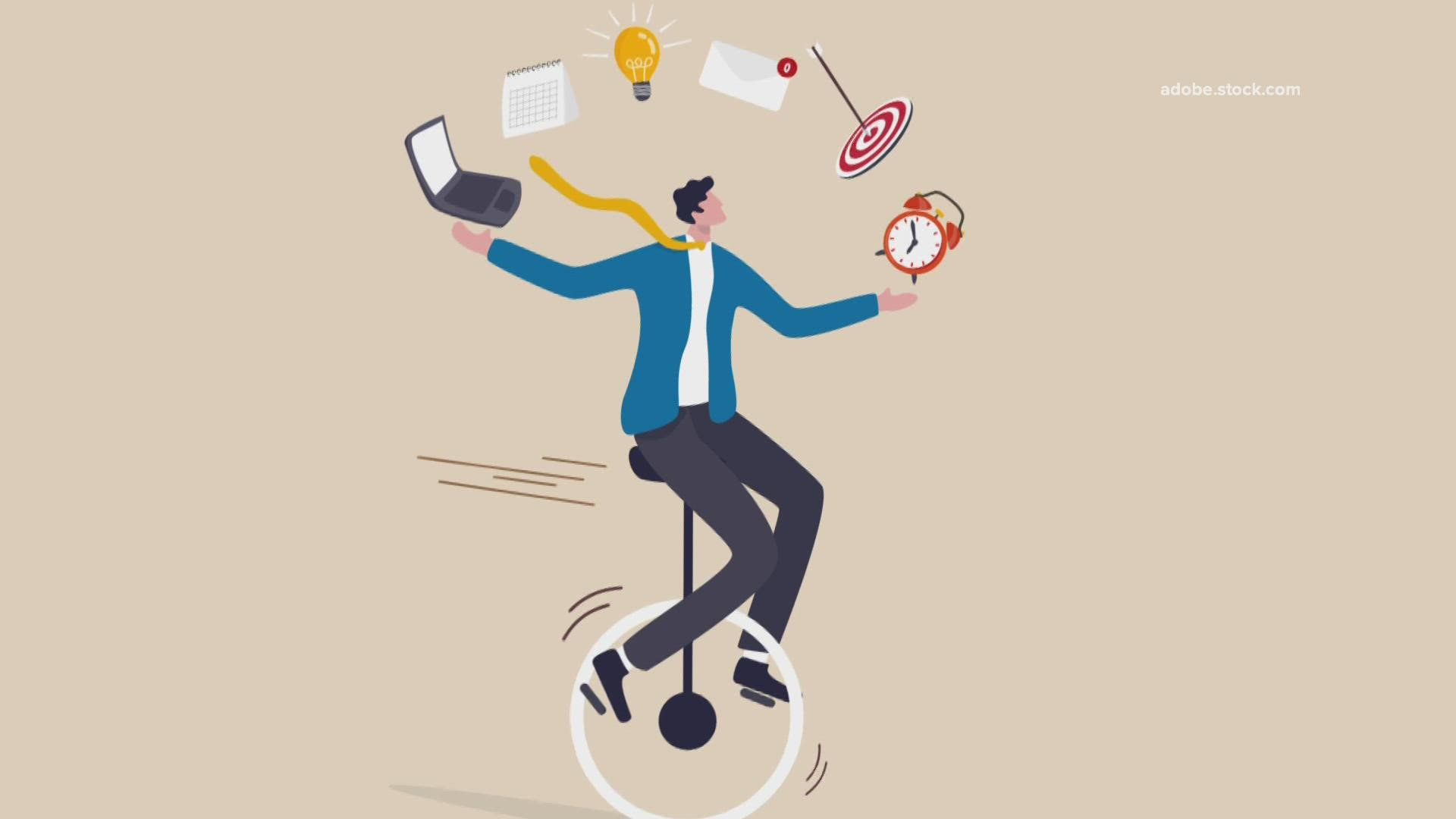PORTLAND, Maine — While things like Zoom and Slack have made working from home easier in many ways and kept us connected -- adding more technology to the way we work or go to school, has a lot of people feeling more stressed or frustrated.
Some of that frustration comes from an inability to juggle so many different things at once, psychologist Dr. Karen Doll said. Which comes down to the ultimate question: can we actually multi-task?
"The short answer is, it depends," Doll said. "When we’re doing two things like, I can cook and listen to music, I can do those two things at once... I can walk and I can listen to a podcast, I can do those two things at once... however, when it comes to doing anything that requires complex thinking or single-focused attention, it doesn’t work."
"Our brains are not like computers, we cannot have two operating systems going on at the same time," Doll said, and when we try to, we usually fail.
"What happens is we get frustrated, we feel distracted, and to be totally honest we feel ineffective. This is a very common challenge," Doll said. "I hear from people that they get so frustrated because they’re having difficulty staying focused and they think that they are flawed in some way because they are not able to stay focused or pay attention for a period of time, and usually it’s not their fault."
"Our work lives and workspaces are set up in such a way that we’re often getting pinged and notifications are going off, we’ve got text messages and emails, and every time a ping or a notification pulls us away from what we are doing, it takes our brains 6 to 21 minutes to re-orient," Doll said.
You can set yourself up for success by minimizing those distractions. Turn off some of the notifications, or at least try to manage them more carefully. Set up boundaries with your work team, which may mean setting an away message that explains you only check messages in Slack or Teams once every hour or twice a day, and an immediate response requires a phone call or a text.
"Frankly a lot of the distraction comes in the form of all of the technology that we are utilizing. Folks are on Zoom calls and they’re trying to address something else to maximize their time," Doll said. "When in the regular working conditions when you were in a meeting, you were less likely to be doing all of those other things."
Dr. Karen Doll is the author of, Building Psychological Fitness: How High Performers Achieve With Ease, which has not been released yet. To learn more about Dr. Doll, click here.

